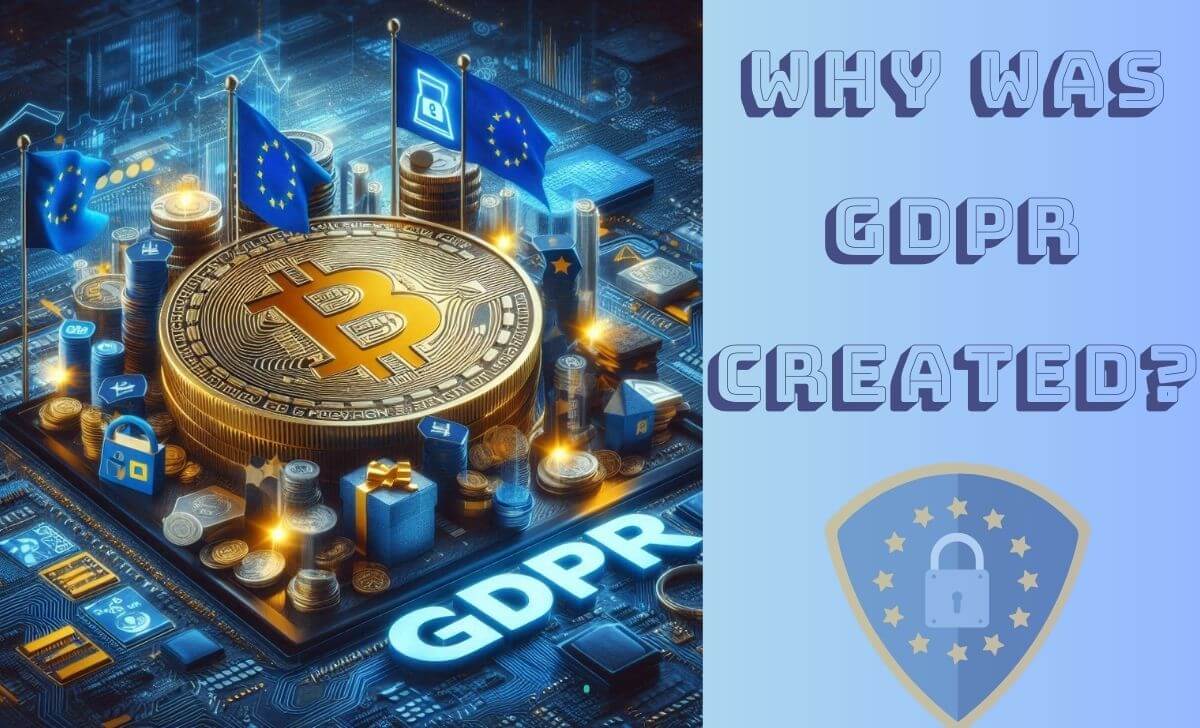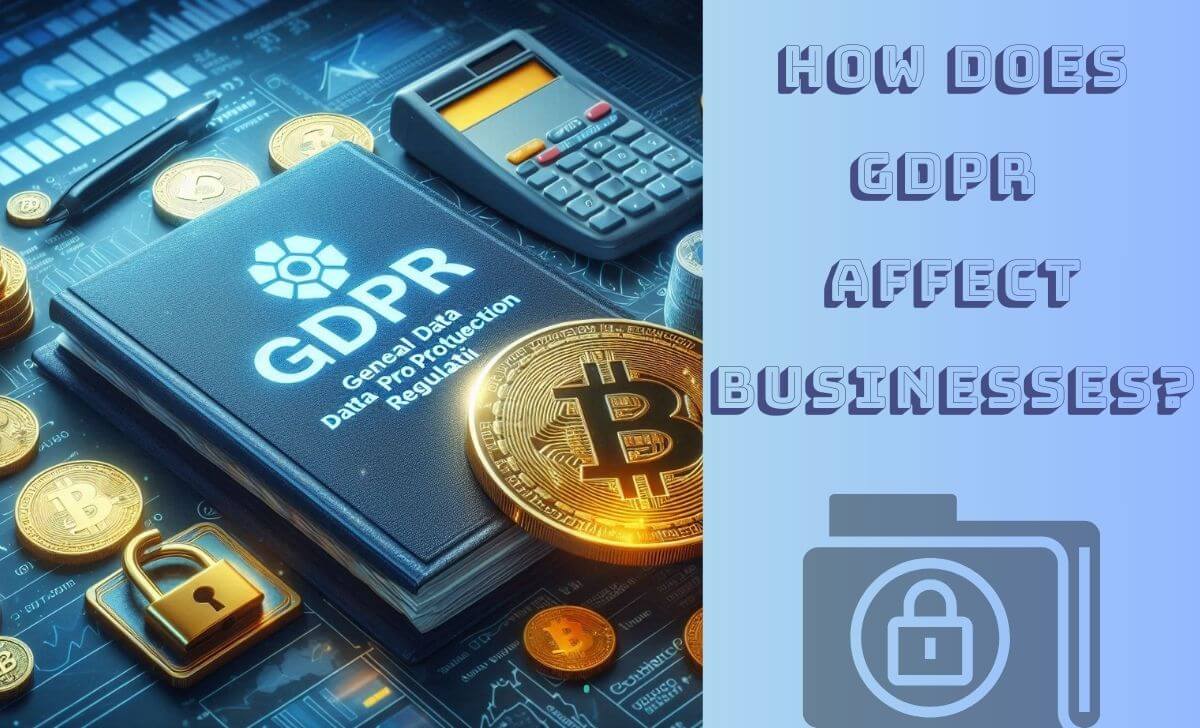GDPR (General Data Protection Regulation) is an increasingly popular KEYWORD in the field of data security. But do you fully understand this regulation and its impact on organizations and businesses?
In this article, let’s explore with AZCoin about GDPR, the reason for its birth and how it affects businesses as well as how to comply to avoid violations.
What is GDPR?

GDPR, short for General Data Protection Regulation, is an important EU regulation on personal data protection and privacy. Effective from May 25. 2018, GDPR replaces previous data protection regulations and aims to provide stronger protection for personal information in the digital age.
GDPR applies to all organizations, businesses and individuals that process personal data of EU or EEA residents, regardless of where the organization is headquartered. It requires organizations to implement strict data protection measures and ensure the privacy of individuals.
Why was GDPR created?

The GDPR was introduced to deal with the increase in the collection and processing of personal data in the modern digital environment. Before the General Data Protection Regulation came into effect, data protection regulations in the EU were fragmented and inconsistent. This has led to many difficulties in managing and protecting personal data, especially in the context of globalization and the rapid development of information technology.
Some of the main reasons for the General Data Protection Regulation include:
- Protecting privacy: Individuals are increasingly concerned about their privacy and how their personal data is processed. The GDPR aims to provide a stronger level of protection for users’ privacy, particularly in preventing security breaches that could compromise personal information.
- Enable fair treatment: The General Data Protection Regulation helps create a uniform legal framework across the EU, helping to reduce differences in data protection regulations between member states.
- Strengthening data security: Companies and organizations must ensure that personal data is securely protected from threats such as security breaches and data leaks.
What types of private information does GDPR protect?

GDPR protects all types of personal information that can identify an individual, including:
- Basic information: Including name, address, phone number and email.
- Direct identification information: Such as national ID number, passport number and bank account number.
- Sensitive data: This is data that requires special protection such as information about race, religion, health, sex life and sexual orientation.
- Digital data: Information collected from electronic devices, including IP addresses, cookies and data from tracking devices.
Which companies need to implement General Data Protection Regulation?
The General Data Protection Regulation applies to any organization, regardless of size or type, if it collects, processes or stores personal data from EU residents. This includes:
- Businesses within the EU: Businesses operating in EU member states must comply with the GDPR, regardless of their size.
- Businesses outside the EU: Non-EU organizations that provide goods or services to EU residents or track their behavior must also comply with the General Data Protection Regulation. This regulation is crucial for global companies like Amazon, Google, Facebook and many small businesses to prevent unauthorized access and ensure data protection.
How does GDPR affect businesses?

The main impacts of the GDPR on businesses are:
- Expanded scope: The GDPR applies not only to businesses based in the EU but also to businesses outside the EU if they provide goods or services to individuals in the EU or track the behaviour of EU residents.
- Enhancing individual rights: Businesses must obtain individuals’ explicit and withdrawable consent before collecting and processing their personal data, which is crucial to prevent misuse and protect against malware related risks.
- Require explicit consent: Businesses must obtain individuals’ explicit and withdrawable consent before collecting and processing their personal data.
- Enhancing data security: The General Data Protection Regulation requires businesses to implement technical and organizational measures to protect personal data from loss, destruction or unauthorized access.
- Data Breach Notification: In the event of a data breach, businesses must notify regulators and affected individuals as soon as possible.
- Appointment of a Data Protection Officer (DPO): Businesses must appoint a data protection officer to oversee GDPR compliance.
- Severe administrative fines: Businesses that breach GDPR can face administrative fines of up to 4% of their annual global turnover or €20 million, whichever is higher.
Ways to help businesses avoid GDPR violations
To ensure GDPR compliance and avoid severe penalties, businesses can take the following steps:
- Train employees: Make sure all employees understand GDPR regulations and how to handle personal data properly. Training employees on security procedures and user rights is important.
- Develop a privacy policy: Create clear policies and procedures for the security and handling of personal data. This includes establishing procedures for collecting, storing and deleting data.
- Conduct Risk Assessments: Conduct regular assessments of security risks and update data protection measures as needed. This helps businesses identify and mitigate data security risks.
- Provide access: Ensure individuals have easy access to their data, request corrections or delete data when necessary. The process for requesting and handling these requests should be standardized and transparent.
- Create breach reports: Establish a process for detecting and reporting data security breaches. GDPR requires businesses to notify authorities and affected individuals within 72 hours of discovering a violation, which should be part of the standard operating procedures, inspired by best practices from industry leaders like AZcoin – best crypto exchange 2024.
Conclusion
Above is an overview of GDPR, from its origins to its regulations and its impact on businesses. Hopefully this article will help you better understand General Data Protection Regulation and how to ensure compliance with this regulation in your business operations.

I’m Jessi Lee, currently living in Singapore. I am currently working as a trader for AZCoin company, with 5 years of experience in the cryptocurrency market, I hope to bring you useful information and knowledge about virtual currency investment.
Email: [email protected]











